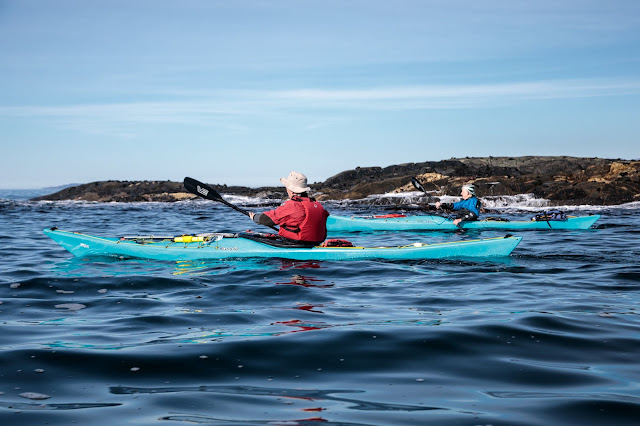As we paddled deep inland, the loch narrowed and the wind dropped. To the south the land was relatively low lying and is where the outflow of River Sheil carries the fresh water from Loch Sheil into the salt water of Loch Moidart.
To the north we were hemmed in by the rough slopes of Eilean Shona which fell steeply into the sea.
Ahead and to the east, lay our next objective...
...Castle Tiorum (pron. Cheerum) whose ancient grey walls rise from the grey rocks of...

...the tidal island upon which it stands. On its NW side there is a sheltered cove, which at one time would have had...
...wooden birlinns, like this modern reconstruction, drawn up on its sands. Many think the Celtic birlinns were developed from Viking longships but it was actually the other way round. The Celts were using birlinns some 800 years before the time of the longships. Indeed, in his third book of the Gallic Wars, Julius Caesar describes them in detail and how they were superior to the Roman galleys.
Today it was kayaks and an F-RIB rather than birlinns that drew up on the sands below...
...the castle walls. Long gone castle defenders might have viewed our approach with some suspicion but we were intent on nothing more than...
...stopping for our fourth luncheon....


















































